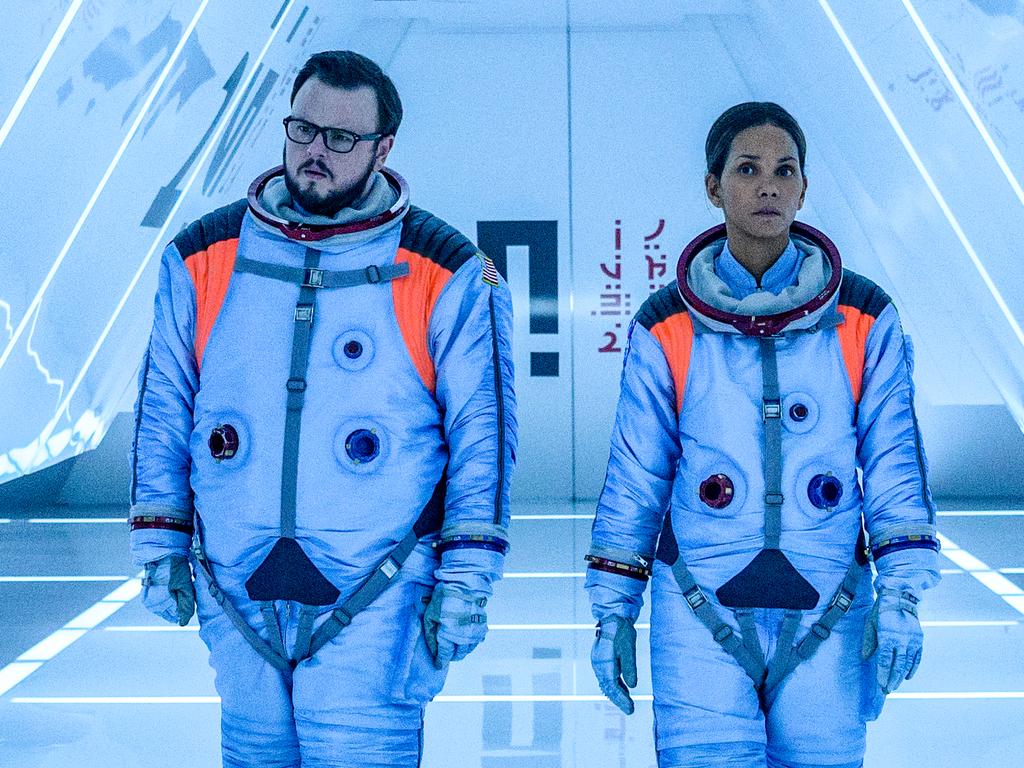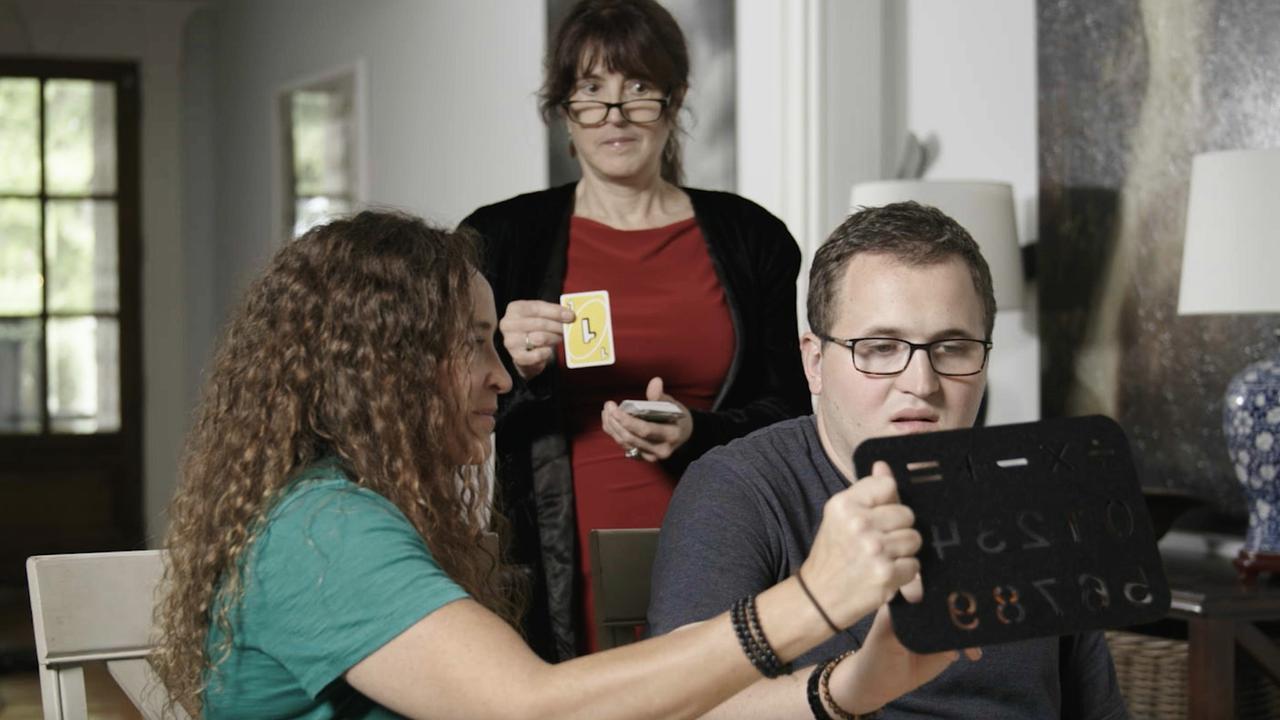Yes, it’s the end of the world, but it should be a fun ride
Those About To Die, a huge-budget series set in the year 79, celebrates the political turmoil in ancient Rome and the imminent collapse of its ancient empire.
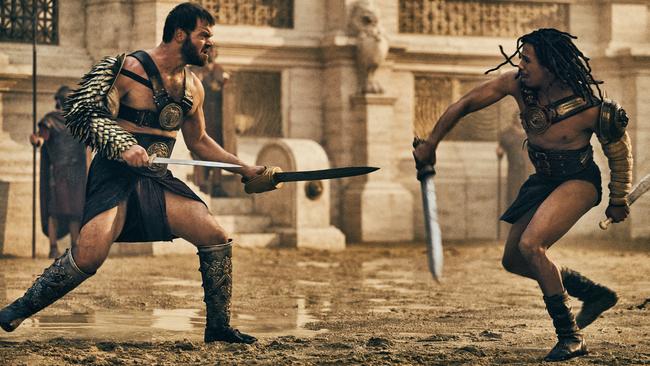
‘Roland Emmerich does disasters better than anyone else alive,” the critic Stuart Heritage wrote recently. “If you want a disaster to be bigger and more elaborate than anything you could possibly imagine, you need Emmerich in your corner.” The highly regarded director is responsible for a clutch of big budget movies such as Independence Day, Godzilla, The Patriot, The Day After Tomorrow, White House Down and Moonfall.
He’s regarded as big on blockbusting budgets but critically easy to disdain, subtlety of little interest to the German director, prestige not really his thing. But he certainly knows how to construct the kind of Earth-ending spectacles his audience enjoys; he’s not a filmmaker listed as the 15th highest-grossing director of all time for nothing, his movies having grossed more than $3bn worldwide.
He’s now turned to TV with Those About To Die, a huge-budget series set in the year 79, a bacchanalian and carnivalesque epic featuring a massive ensemble cast led by the heavily promoted Anthony Hopkins. And Emmerich, instead of destroying the world again, celebrates the political turmoil in ancient Rome and the imminent collapse of its ancient empire.
“Rome, once the beacon of civilisation, is now a cesspool of corruption and decay,” a voiceover tells us at the start, and the director delights in his portrayal of a world sinking into chaos and disorder as political control is only just maintained by the blood-soaked circuses that entertain the masses. It’s a city where life and death are often decided by the whim of the crowd clamouring in the Circus Maximus, home to not only frenetic chariot races but wild animal hunts and violent gladiatorial combat.
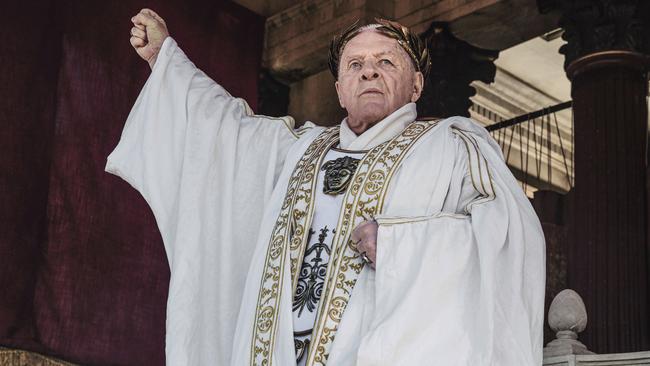
And as in all Emmerich’s work the notions of character development and clarity of plot play second-fiddle to the accelerating melodrama and mayhem; and like his movies it’s all absurdly entertaining. As he once told the New York Times, speaking about his apocalyptic 2012: “Yes, it’s the end of the world, but it should be a fun ride.”
In this case deadly fun, the show’s title derived from the Latin “Ave, Imperator: Morituri te salutant”, or “Hail, Emperor, those who are about to die salute you”. As the gladiators entered the massive arena the fighters, it is said, they marched towards the emperor’s box and stated the mournful salute.
The series draw its inspiration from Daniel Mannix’s non-fiction book of the same title, a popular history published in 1958, and lauded at the time for colourfully placing the brutal gladiatorial contests into the context of the decline of the empire.
The Los Angeles Times said in review, that if a reader might “imagine a superior American sportswriter suddenly being transported back in time to cover the ancient Roman games” they would have some idea of “the flavour and zest” of Mannix’s research. But the cover alone suggests something lurid and doubtfully accurate, more like a pulp novel from the period, something to read on the train and then leave behind.
Emmerich directs several of the episodes and is executive producer, the script written by
Saving Private Ryan’s Robert Rodat.
“I have always been fascinated by the history of the Roman Empire,” Emmerich says. “So much still seems relevant for our society today – from the entanglement of politics and sports to the disciplines of the competitions, which haven’t changed much either over the last 2000 years. The most electrifying spectacles for the masses still involve two men in an arena, beating each other up, and the chariots of today are called race cars whose drivers still crash and often pay with their lives.”
His fascination is evident as he revels in an expensive take on swords-and sandals storytelling, often as dirty and violent as any gladiator’s clash. His cameras – there must have been many – rush up and down grimy, crowded alleys, glide through the marbled halls of power, or are mounted on the massive chariot-bearing horses; and they participate viscerally in the many brawls, murders and wild animal hunts. There is little shame in playing to the cheap seats in this show, and at times the theatre, the high camp of it all, works compellingly.
That is despite the dialogue being largely innocuous and the characters taking an eternity to establish themselves. Emmerich seems to have little control over when and how they appear and there seem to be far too many at the start to establish any discernible emotional arcs for them. It hardly matters as Rodat’s script seldom lingers on any situation long enough for us to throw a wine glass at the screen, racing from one crowded moment – like one of Emmerich’s chariots – towards the next.
That voice over at the start belongs to a character called Tenax – “Not my real name”, he tells us – played with mischievous energy by Iwan Rheon, a charming but villainous wheeler-dealer, adroit and quick witted, who owns the biggest betting tavern at Circus Maximus, Rome’s arena for chariot racing and gladiatorial battles. “No value in mercy”, is his mantra and he has a creditor killed off in the first minutes.
He’s a rather appealing gangster, adept at cheating his customers and fixing the big chariot races with the connivance of the sport’s most popular driver, the gregarious and mostly inebriated Scorpus, played with vigour and relish by Dimitri Leonidas. Together they take us beneath the huge Circus and deep into the underworld that thrives there, the hustlers after tips, warriors preparing for fights, soldiers maintaining order, storage areas for staging equipment and scenery, stables for the horses, cages holding wild animals, and the hundreds of attendants and technicians the games require.
Like those around him, Tenax is aware that competition is imminent with Emperor Vespasian’s pet project the Flavian Amphitheatre, which will eventually become known as the Colosseum, already on the horizon. A wheezy Hopkins grimly plays the dying Vespasian, considering which of his two sons will succeed him, the taciturn soldier Titus (Tom Hughes) or the lisping Domitian (Jojo Macari), a scheming boy in need of a touch more inscrutability if he’s to succeed politically. And given the sneering that goes on, it’s obvious he believes little will hold him back.
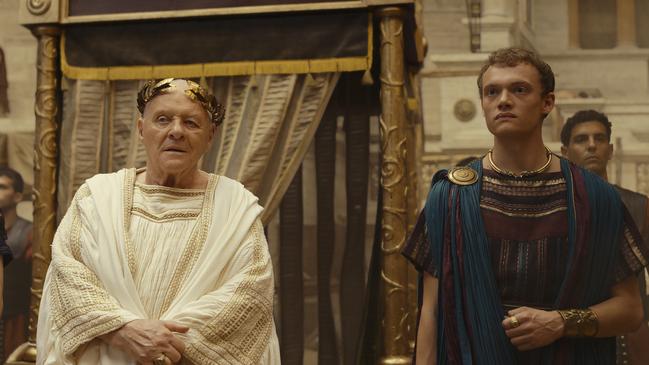
Among a number of subplots – this is a very busy, if often confusing show – there’s a family from the outer reaches of Numidia. Cala (Sara Martins) winds up working with Tenax, but her daughters Aura (Kyshan Wilson) and Jula (Alicia Ann Edogamhe), and son, the intrepid hunter of lions, Kwame (Moe Hashim), are all enslaved and taken to Rome. Kwame seems destined for life as a sturdy gladiator, a story arc yet to be revealed.
There’s also a bunch of rustic Spanish brothers ambitiously bringing classy Andalusian white horses to Rome, hoping to sell them to raise the cash to buy a breeding property in their homeland.
The narrative in the initial episode turns on a potential riot by Rome’s starving populace as grain from Egypt is delayed, caught up in imperial power struggles. This is averted by an impromptu chariot race ordered by Vespasian and staged as a diversion, the teams of drivers representing the different, competing factions of the corrupt elite – Blue, Red, White and Green. And spectacular it is, too, the muscular, swarthy drivers whipping their teams of huge horses, lashed four abreast, on the straights and violently jostling wheel-to-wheel as they hurtle around hairpin turns.
“I know of no other period in history that has so many echoes and resonances with today’s world,” Rodat says. “Though set firmly in the past, the show is a lens through which we can look at today in terms of entertainment, violence, immigration, gender, poverty, ambition and wealth.” Not really. It’s just too frantic and comic-strip to look for parallels to today’s politics but is the perfect show to enjoy on your own with a glass of wine and binge until you pass out.
Those About To Die streaming on Prime Video.



